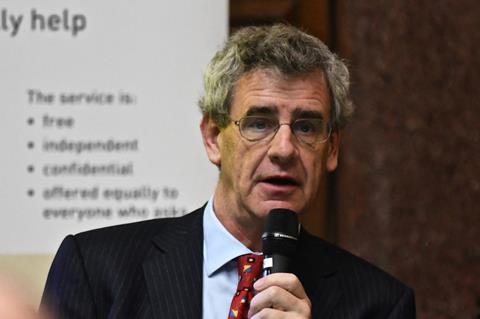A Supreme Court judge has said the trend of courts working largely outside public view could change through documents being made more widely available.
Lord Briggs has spoken of his concern that much of the legal process is now inaccessible to observers as so little of the case itself is heard in open court.
Briggs said civil courts have made great strides towards a streamlined and efficient process, but that has come at a potential cost to openness and transparency. Speaking at a Westminster Legal Policy Forum event, he pointed out that documents are pre-read by judges before the case starts and most submissions are in writing. Documents referred to in court are not actually read out, while most case management hearings take place remotely and require court-approved log-in details.

Briggs said: ‘A member of the public or even an academic walking into the back of a court will simply lose contact with the detail of what is going on within a few minutes.
‘You can hear the judges and barristers but the whole documentary process has become more or less invisible.’
He added that this trend has ‘not finished yet’, and that courts’ attempts to be more streamlined and affordable will further restrict the time dedicated to oral hearings.
For the Supreme Court, at least, Briggs said the public should be able to view documents being discussed in court as they are referenced, subject to caveats on confidentiality and commercial sensitivity.
‘The long-term objective is that somebody watching a Supreme Court hearing in, let’s say, Canada, will have as much access to what is going on as the justice sitting on the bench,’ said Briggs, who was the judge in charge of the Chancery modernisation review in 2013, and led the civil courts structure review in 2015 to 2016.
Earlier this month, the Supreme Court started the next phase of its change programme, part of which will include ensuring more public access to court papers. At present, parties’ submissions and documents filed in the court are available only on formal application to the registrar.
A Supreme Court spokesperson said: ‘The change programme is an ambitious programme which will embrace modern technologies to transform our processes to improve the way we work in order to provide a world-class service to users.
‘The time-frame for the change programme is two years planning and a further year embedding so new processes should be fully established by 2026.’
This article is now closed for comment.



























12 Readers' comments